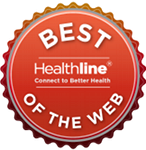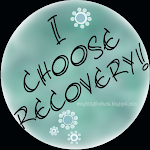Natasha's Story: "I Was Raised Thinking I Had No Worth, No Place In This World."
Medusa
Hi Medusa,
My name is Natasha and I am 18 years old. When I think about my life, I'm never really sure when exactly I started hating myself. I had suicidal thoughts when I was around 9 years old. I was raised thinking I had no worth, no place in this world. My stepmother starved me, beat me, and ridiculed me daily.
Read in full: Natasha's Story
Being Rational
ED Bites
Although I've never experienced a full-blown psychotic episode, I found myself nodding my head in agreement with this neuroscientist's description of her own psychosis.
"Erin, you are a scientist," they'd begin. "You are intelligent, rational. Tell me, then, how can you believe that there are rats inside your brain? They're just plain too big. Besides, how could they get in?"
They were right. About my being smart, I mean; I was, after all, a graduate student in the neuroscience program at the University of British Columbia. But how could they relate that rationality to the logic of the Deep Meaning? For it was due to the Deep Meaning that the rats had infiltrated my system and were inhabiting my brain. They gnawed relentlessly on my neurons, causing massive degeneration. This was particularly upsetting to me, as I depended on a sharp mind for my work in neuroscience.
The rats spent significant periods of time consuming brain matter in the occipital lobe of my brain. I knew, from my studies, that this was the primary visual cortex. And yet, I experienced no visual deficits. Obviously, I realized, I had a very unique brain: I was able to regenerate large sections of my central nervous system—and to do so extremely quickly. I relaxed a bit, but not entirely. Surely no good could come of having rats feed on my brain cells. So I sought means of ridding my body of them. I bled them out through self-cutting and banging my head until the skin broke, bloody. Continually, I kept my brain active, electrocuting the rats that happened to be feasting on the activated neurons.
Read in full: Being Rational
Don't You Realize That Fat Is Unhealthy?
Shapely Prose
Here’s the thing: I blog about fat acceptance.
Fat acceptance, as you can probably guess from the words “fat” and “acceptance” being right together like that, does not go over so well in some circles. Even in some progressive circles — which are usually known for not hating entire groups of people because of their appearances, not thinking what other people do with their bodies is anybody’s beeswax, and not uncritically accepting whatever moral panic the media tries to whip up, but wev. Fat is different! Don’t you know there’s an obesity epidemic? Don’t you know that fat kills? Haven’t you ever heard of Type 2 diabetes? Don’t you realize how much money this is going to cost society down the line? Won’t someone please think of the children?
So, before I start getting comments like that, I want to lay out ten principles that underlie pretty much everything I write about fat and health.
1. Weight itself is not a health problem, except in the most extreme cases (i.e., being underweight or so fat you’re immobilized). In fact, fat people live longer than thin people and are more likely to survive cardiac events, and some studies have shown that fat can protect against “infections, cancer, lung disease, heart disease, osteoporosis, anemia, high blood pressure, rheumatoid arthritis and type 2 diabetes.” Yeah, you read that right: even the goddamned diabetes. Now, I’m not saying we should all go out and get fat for our health (which we wouldn’t be able to do anyway, because no one knows how to make a naturally thin person fat any more than they know how to make a naturally fat person thin; see point 4), but I’m definitely saying obesity research is turning up surprising information all the time — much of which goes ignored by the media — and people who give a damn about critical thinking would be foolish to accept the party line on fat. Just because you’ve heard over and over and over that fat! kills! doesn’t mean it’s true. It just means that people in this culture really love saying it.
Read in full: Don't You Realize...
Eating Disorder Recovery: From Inpatient Treatment To Life
Margarita Tartakovsky
I’m thrilled to publish today’s guest post by Elizabeth Short. Just recently Elizabeth shared her story of recovery and resiliency here at Weightless (part 1 and part 2). Currently, she’s a Masters student in Counseling at The University of New Orleans, and writes the blog Fiding Hope.. Elizabeth is also in the process of writing a memoir about her recovery. I love that Elizabeth is reaching out to others with her positive and hopeful message, and I love her guest post. It’s raw, insightful, brave and beautifully written. Plus, it offers really valuable advice. And I can’t say enough great things about it. I’m so grateful to her for sharing this with us.Inpatient treatment for eating disorders: Locked bathrooms. Staff watching your every move, including time in the bathroom. Meals and snacks are closely monitored. No shoelaces, tweezers, coffee, gum or mouthwash. 6 a.m. weigh-ins. Room searches. Individual and/or group therapy all day long.
Sounds a little like prison to some, but for me, it was safety. It meant I couldn’t restrict my intake or purge after eating. I couldn’t use laxatives or diet pills. I couldn’t weigh myself 50 times a day. I couldn’t stay isolated in my house for days at a time.
Read in full: From Inpatient Treatment To Life
Watch It
Happy Bodies
The other night, when refusing a second helping at a dinner party, a guy said: “None for me, I’m watching my figure.”
We all laughed.
What a silly thought, a guy, who’s young and looks fit, dieting? Ridiculous. And yet this is just expected for so many people. So often people who are read as fat (and therefore automatically unhealthy) are subjected to judgements and unwanted advice: if you only ate a little less, worked out a little more, watched your figure, you could look young and fit too!
This comment struck me particularly because I’m reading two book right now (by white men) where major female characters are made into joke figures because of their weight. While the eating habits and fitness of other characters are not chronicled, paragraphs are dedicated to Lizzyboo stopping for ice cream before dinner and every time Vera moves across a scene her jiggles or heavy breathing are remarked upon. The joke is not just fat = funny (which it isn’t) but also how stupid these women are! If she didn’t have those extra snacks she wouldn’t be such a fattie! Silly Vera, always going on binges after diets and gaining the weight back. They make it character flaw that they are fat. A flaw that they don’t know how to properly watch their figures.
A study came out recently that reported that when Forty dietetics and health promotion students enrolled in a university obesity course followed a a calorie restricted diet (1,200 calories for women and 1,500 calories for men) for just one week their was a significant change in their fat-phobias. It makes sense that once these future dietitians and health professionals realized how high the expectations were of their fat patients they would become more sympathetic. It so easy to look at someone else and think you know what is best for them, but in actuality, individuals are in the best position to make choices about their lives and bodies. Even doctors trained to take care of our health can be subject to fat-phobia, and take it out on their patients.
Read in full: Watch It
Reboot
Defining Wellness
I’m proud to say I’m an optimist. Even when I’m feeling stressed, anxious or upset, and even when I’ve felt so low that I couldn’t summon the strength to get out of bed, there’s always been that voice inside of me that says, “It WILL get better. There IS hope.”
And I don’t just feel that hope for myself. I feel that hope for anyone who needs it. I believe that we all have the power to be thankful for what we have even in the midst of sadness, to take the necessary steps to make life better.
But even with this optimistic attitude, there are times when I get in a funk. I wake up and feel anxious and think, “Huh, where’d that come from?” Or I get in some kind of existential rut and I obsess about my place in the world. Or eating disorder symptoms re-emerge and I think, “You again? I thought I folded you up, packed you in a box, and buried you in a bottomless pit.”
It’s at times like these that I use that optimistic energy within me to reboot.
In a recent post, I discussed my desire to plan less . . . do more . . . NOW.
When I get in a funk, that’s half of the solution. Stop thinking about everything that’s going wrong and start living.
Read in full: Reboot
sources linked above


























